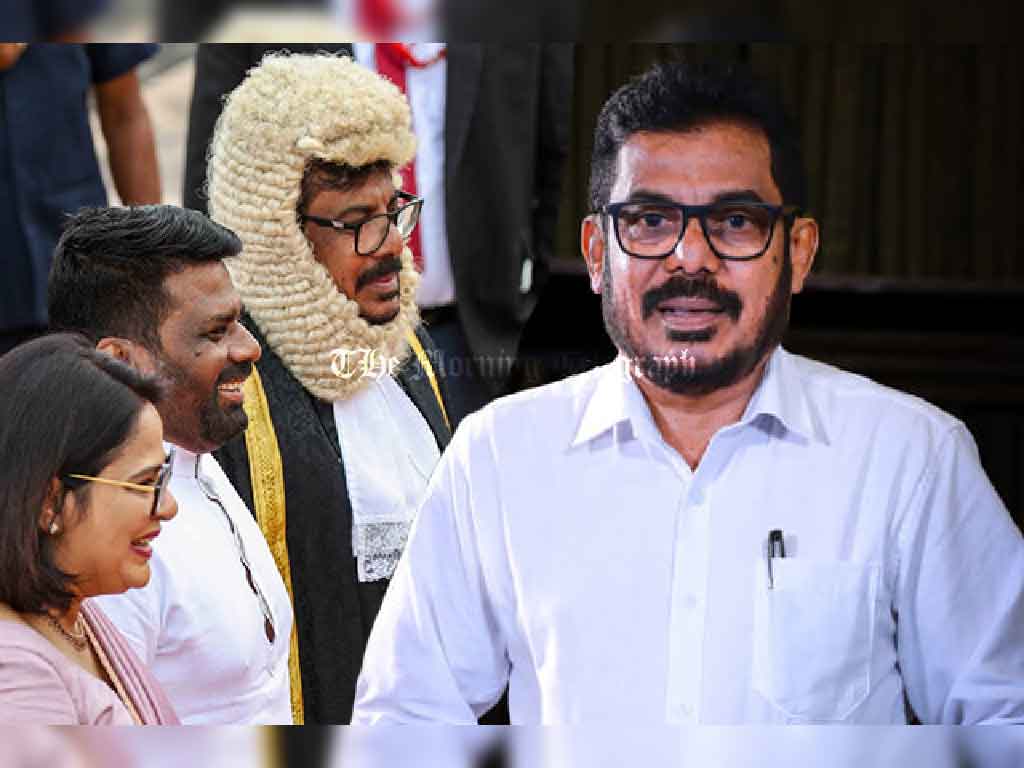
Dr. Ashoka Sapumal Ranwala, the Speaker of the Parliament of Sri Lanka, currently holds the third most important position in the country, according to the constitution. His official biographical details, published on the Sri Lankan Parliament website, claim that he holds a degree in Chemical Engineering from the University of Moratuwa and a PhD in Biochemistry from Waseda University in Japan. These qualifications are also listed on his LinkedIn profile, which has recently been updated to reflect his new role as Speaker of Parliament.
While these qualifications are admirable on the surface, significant doubts have emerged about their authenticity. Allegations suggest that Dr. Ranwala was never enrolled as a student at the University of Moratuwa’s Chemical Engineering program, nor did he obtain a degree in Chemical Engineering from the institution. This claim is particularly concerning as the Speaker’s credentials are crucial for public trust in his leadership.
A retired alumnus of the University of Moratuwa, who was part of the first batch of Chemical Engineering students and graduated with First Class Honours, is one of those raising concerns. This individual, who is now retired, expressed frustration that Dr. Ranwala’s claimed credentials could devalue the reputation of their university’s prestigious Chemical Engineering program. Furthermore, through a regular Zoom meeting with former classmates, it was confirmed that Dr. Ranwala’s name does not appear in the records of the Chemical Engineering Department. A retired senior professor with ties to the university also made inquiries within the department, and it was confirmed that no one by the name of Ashoka Ranwala had ever been enrolled in the Chemical Engineering course.
In addition to the questions surrounding his undergraduate degree, doubts have also arisen about Dr. Ranwala’s alleged PhD from Waseda University in Japan. Searches in both Waseda University’s library database and Japan’s National Diet database yielded no records of a doctoral dissertation by Dr. Ranwala. While it is possible that his dissertation was not made publicly available before 2013, this remains unverified. To further investigate, inquiries have been sent to Waseda University’s Biochemistry Department, but responses are awaited.
The allegations have drawn public attention, with former Election Commission Chairman Mahinda Deshapriya calling for Dr. Ranwala to either prove his academic credentials or resign. Many Sri Lankan alumni of Waseda University have also expressed disappointment and concern over these claims, as it appears that only two other individuals with the surname ‘Ranwala’ were enrolled at Waseda University, and neither were involved in Biochemistry.
The Speaker’s lack of response to these serious allegations has led to growing frustration among those seeking transparency and accountability in Sri Lanka’s political leadership. It is particularly disheartening for those who expected a new era of honesty and integrity in public office. As of now, the authenticity of Dr. Ranwala’s academic credentials remains in question, with many calling for a thorough investigation into the matter.
Falsifying academic qualifications, if proven, would be a serious violation of public trust and a matter of grave concern for the people of Sri Lanka.





The astonishing thing is that the Hon Speaker gives no dates for his claimed academic qualifications. Nor does he even list the title of his alleged doctoral thesis.
In contrast in the instance of the Hon Prime Minister her academic credentials and dates are stated clearly in her Wikipedia entry and in her case (she is actually a PhD from Edinburgh University) it is very easy to find her thesis title and abstract from the University of Edinburgh.
The Hon Speaker’s LinkedIn entry has now been removed, there is now a possibly new entry for one “Asoka Ranwala” but with no details at all, or no details yet.
The Hon Speaker’s Wikipedia entry (which is of course open to edit by almost anyone) now says he holds a NDT diploma rather than a degree. This is more plausible. A NDT diploma is not a Bachelors degree, of course.
The University of Moratuwa will of course know the facts definitively, but may fear political retribution and therefore be reluctant to provide a resolution.
As for the Waseda University doctoral dissertation also allegedly ascribed to the Hon Speaker, the following data sources at Waseda (2) and at the Parliament of Japan (1) show no record of such a dissertation.
The simplest explanation of this absence, is surely that the dissertation does not actually exist.
Waseda University Library has a externally accessible database of all Waseda dissertations held by that Library which can be searched at:
https://waseda-jp.libguides.com/research-navi/find_theses/en
There is also Waseda University Repository, which purports to hold all of the University’s doctoral dissertations and many other documents. This source also has no record of a doctoral dissertation by this person. The data repository may be found here:
https://waseda.repo.nii.ac.jp/?page=1&size=20&sort=custom_sort&search_type=0&q=0
The DIET (Parliament of Japan) also has an online library of details of dissertations published in Japan. There is no relevant entry in this data source either.
https://dl.ndl.go.jp/en/
it would of course be a easy matter for the Hon Speaker to refute these allegations. It is intriguing that he chooses not to do so, alleging political persecution.
This seems like an early test of the committment of the new Government to honesty and probity in political life.